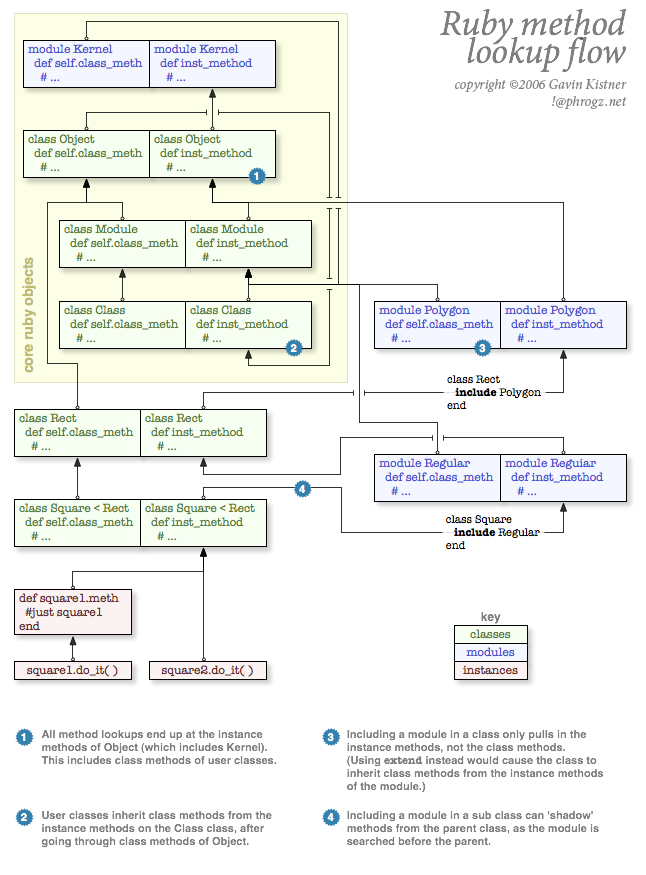a really really stupid question:
p “hello”
“hello”
=> nil
is p a method of object?
self.class
=> Objectself.methods
=>
[“inspect”, “popws”, “quit”, “irb_fg”, “clone”, “method”,
“public_methods”, “public”, “irb_cwws”, “instance_variable_defined?”,
“irb_help”, “irb_change_binding”, “equal?”, “freeze”, “pushb”,
“pretty_print_instance_variables”, “conf”, “irb_print_working_binding”,
“workspaces”, “methods”, “respond_to?”, “irb_pop_binding”, “irb_chws”,
“irb_pushws”, “dup”, “pretty_inspect”, “irb_pwws”, “irb”, “irb_require”,
“instance_variables”, “irb_cb”, “kill”, “id”, “irb_context”,
“irb_pop_workspace”, “eql?”, “object_id”, “irb_cwb”, “irb_jobs”,
“irb_bindings”, “id”, “irb_current_working_workspace”, “irb_popb”,
“singleton_methods”, “send”, “irb_cws”, “fg”, “taint”, “pushws”,
“frozen?”, “instance_variable_get”, “private”, “cwws”, “send”, “cb”,
“help”, “instance_of?”, “to_a”, “irb_pwb”, “type”, “bindings”,
“protected_methods”, “instance_eval”, “popb”, “==”, “display”,
“irb_kill”, “chws”, “===”, “install_alias_method”, “irb_push_binding”,
“instance_variable_set”, “pwws”, “irb_source”, “kind_of?”, “extend”,
“irb_workspaces”, “pretty_print_cycle”, “irb_quit”, “irb_popws”,
“pretty_print_inspect”, “to_s”, “irb_change_workspace”, “irb_exit”,
“jobs”, “hash”, “irb_push_workspace”, “class”, “include”,
“irb_print_working_workspace”, “irb_load”, “tainted?”, “=~”,
“private_methods”, “cws”, “source”, “nil?”, “irb_pushb”, “untaint”,
“exit”, “irb_current_working_binding”, “context”, “pretty_print”,
“is_a?”]
no. looks like it’s not. so where does it come from? is it a ruby
method?

